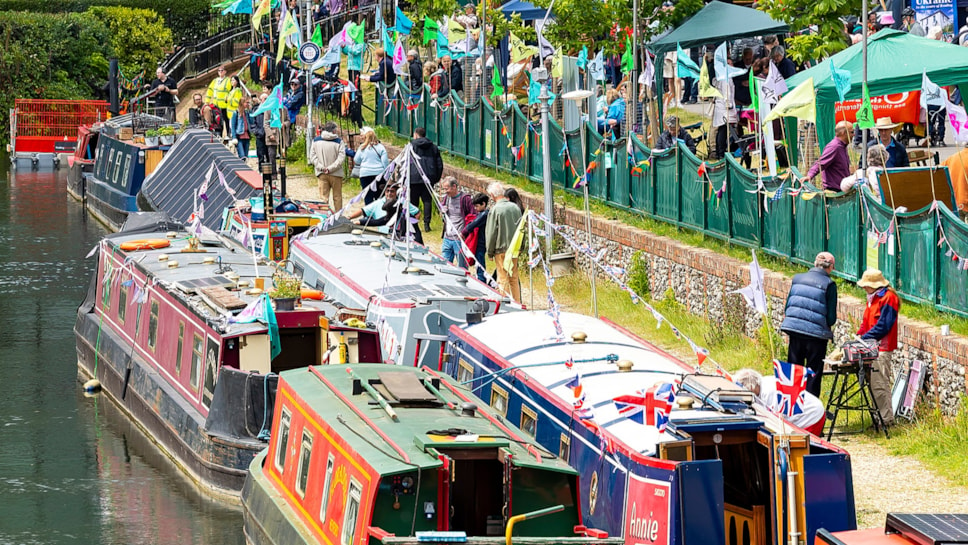
Reading festival organisers working together on groundbreaking environmental initiative
- Reading taking part in important national Green Events Code of Practice pilot
- Organisers of Reading Festival, Readipop, East Reading Festival and Reading Pride among those attending local workshop
Organisers of events across Reading, ranging from Reading Festival to Reading Pride, are working together to make sure they are as sustainable and environmentally friendly as possible.
Reading Borough Council is one of 10 local authorities in the UK taking part in a national pilot to develop consistent guidance on sustainability for event organisers across the country.
Organisers of some of Reading’s biggest and best-known occasions and smaller local community events recently gathered for a workshop hosted by the Council at the Civic Offices.
The Green Events Code of Practice (GECOP) is being developed by the Vision 25 group, representing members of the outdoor live events industry, and they invited Reading to take part in the pilot project. The pilot is being co-funded by the Arts Council and participating local authorities.
The initiative ties in with the Council’s own ambitions for Reading to be net zero carbon by 2030. There is also a commitment within Reading’s Climate Emergency Strategy for the Council to work with local festival organisers to explore opportunities to have more sustainable festivals in the borough.
GECOP focuses on seven key areas where positive environmental change can be achieved at events: governance, energy, travel and transport, food and drink, waste, water and influence.
There is currently a lack of nationwide consistency for guidance on how to achieve this and the code aims to establish clear standards for event organisers throughout the country.
Guests present at the workshop at the Civic Offices, on Tuesday 9 April, included the organisers of Reading Festival, Readipop Festival, Reading Pride, East Reading Festival, Reading Winter on Ice, Reading Mela, Reading Water Fest, Blue Collar and Reading’s Economic and Destination Agency (REDA). Members of the Green Events Code of Practice Pilot team also attended along with Council officers.
Representatives of Festival Republic, organisers of Reading & Leeds Festival, gave a presentation on their green policies on food and drink, materials and waste and water and energy at their events. The attendees then took part in workshops exploring those areas.
During the pilot event organisers will be asked to trial the Doughnut Advisory Tool for Events, or DATE tool, which offers a quick and effective way to profile an event’s sustainability practices against the GECOP, as well as accessibility. It creates an event score and highlights good practice and potential improvement areas, along with advisory information for event organisers.
Louisa Dean, Head of Communications, Events and Marketing at Reading Borough Council, said:
“We are really pleased that Reading has been invited to be part of this important national pilot.
“Not only will this initiative support Reading’s ambition to be net zero but it will potentially help provide festival organisers and local authorities across the country with consistent guidelines to hold events that are sustainable and environmentally sound.
“It will help tackle many of the issues associated with festivals, such as use of single-use plastics, energy use, management of waste and how visitors travel to the site.
“Event organisers who attended the workshop at the Civic Offices were really enthusiastic and positive about the initiative and, of course, the Council will be playing it’s part directly with the popular events it holds every year, including Water Fest and Reading Children’s Festival.”
Matt Foster, from East Reading Festival, said:
“East Reading Festival is really pleased to be helping pilot the Green Events Code of Practice in Reading. This is an important and timely initiative for us, and the wider festival sector.
“We have been talking about how best to play our part in cutting carbon emissions and addressing environmental impact for a while. But as a small, volunteer-led festival we have struggled to know how. Already we can see we are on the right path. More importantly we are not alone!
“It has been great hearing experiences of other local festivals, large and small, sharing knowledge about what works as well as identifying barriers that we can address together. We know we will need to do some things differently, which is daunting. But also exciting!”
Molly Banbury, Readipop Festival Producer, said:
“Readipop Festival is absolutely delighted to be involved in such an important initiative. It offers independent charity festivals like ours a platform to show and demonstrate the many positive steps towards our sustainable and accessible goals that we are working so hard as a small team to implement.
“But it also offers us an opportunity to identify key areas that still need attention and some support to help us achieve our ambitions.”
The Council is hoping to work with local event organisers during the pilot to help develop an environmental statement which will then be adopted and used across Reading events in the future. The new DATE analysis tool will also be used to help collate data and analyse local events to develop an action plan on how to progress sustainable practices in the future.
